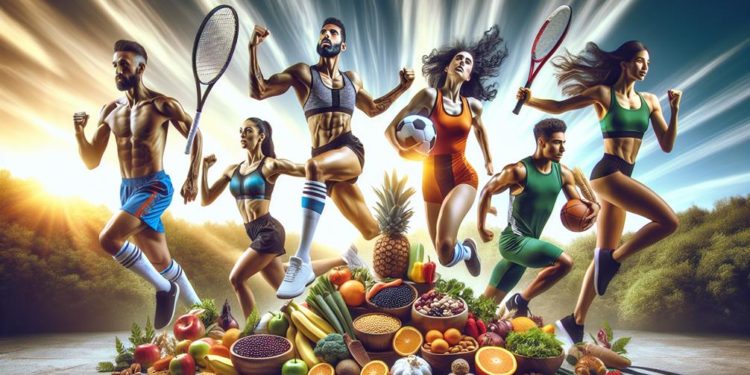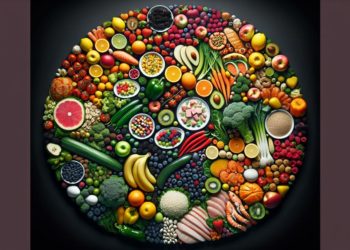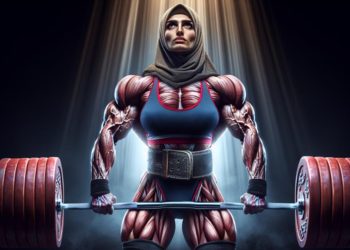In a world where strength and resilience are often associated with animal-based diets, a new wave of vegan athletes is emerging, challenging the conventional wisdom. These plant-powered fitness enthusiasts are breaking records, shattering stereotypes, and proving that a vegan lifestyle can fuel extraordinary athletic performance. From marathon runners to weightlifters and bodybuilders, vegan athletes are shining in various sports, demonstrating the power of a plant-based diet. But what exactly is it that gives them their edge? Stick around to uncover the secrets behind their success and be inspired by their remarkable achievements.
Key Takeaways
- Vegan athletes have achieved success in high-performance sports, debunking the notion that animal products are necessary for optimal athletic performance.
- Plant-based diets can fuel athletic performance by providing sufficient nutrients for athletes.
- Vegan athletes have demonstrated endurance, strength, and overall improved performance.
- Plant-based diets can enhance overall health and well-being, leading to lower cholesterol and blood pressure levels in vegan athletes.
The Rise of Vegan Athletes
More and more athletes are embracing a vegan lifestyle, finding that it enhances their performance and overall well-being. Vegan athletes in professional sports have been on the rise in recent years, challenging the notion that animal products are essential for optimal athletic performance. These athletes have shown that it is possible to excel in their respective sports while following a plant-based diet.
One of the key reasons behind the success of vegan athletes lies in their recovery strategies. Recovery is a crucial aspect of any athlete's training regimen, as it allows the body to repair and rebuild muscles, replenish energy stores, and reduce the risk of injury. Vegan athletes have discovered effective recovery strategies that enable them to bounce back quickly after intense training sessions and competitions.
Plant-based diets are rich in antioxidants, which help to reduce inflammation and promote faster recovery. Antioxidants can be found in abundance in fruits, vegetables, nuts, and seeds, all of which are staples in a vegan athlete's diet. Additionally, plant-based diets are typically high in fiber, which aids in digestion and nutrient absorption, further supporting the recovery process.
Many vegan athletes also prioritize adequate rest and sleep, as these are crucial for optimal recovery. They understand the importance of allowing their bodies to rest and repair, ensuring that they are ready to perform at their best when it matters most.
Plant-Powered Endurance: Vegan Runners
Vegan runners are proving that a plant-based diet can fuel their endurance and help them achieve peak performance. Contrary to the belief that athletes need animal products for optimal performance, plant-based nutrition has been embraced by many marathoners and ultramarathoners. Plant-based diets provide the necessary nutrients for long-distance running, such as carbohydrates, proteins, and fats, while also offering additional health benefits.
When it comes to plant-based nutrition for marathoners, carbohydrates take center stage. Foods like whole grains, fruits, and vegetables provide the essential energy needed for long runs. These foods are rich in complex carbohydrates that are slowly released into the bloodstream, providing a sustained source of fuel. In addition, plant-based proteins can be obtained from sources like beans, lentils, tofu, and tempeh, which are important for muscle repair and recovery. Healthy fats, found in foods like avocados, nuts, and seeds, provide an additional source of energy and aid in nutrient absorption.
Vegan ultramarathoners are also thriving on plant-based diets. They have found that a diet centered around whole plant foods helps reduce inflammation, speeds up recovery, and improves overall performance. The abundance of antioxidants found in plant-based foods helps combat oxidative stress, which can occur during long-distance running. Furthermore, plant-based diets tend to be higher in fiber, which aids in digestion and promotes gut health.
Building Strength With a Plant-Based Diet: Vegan Weightlifters
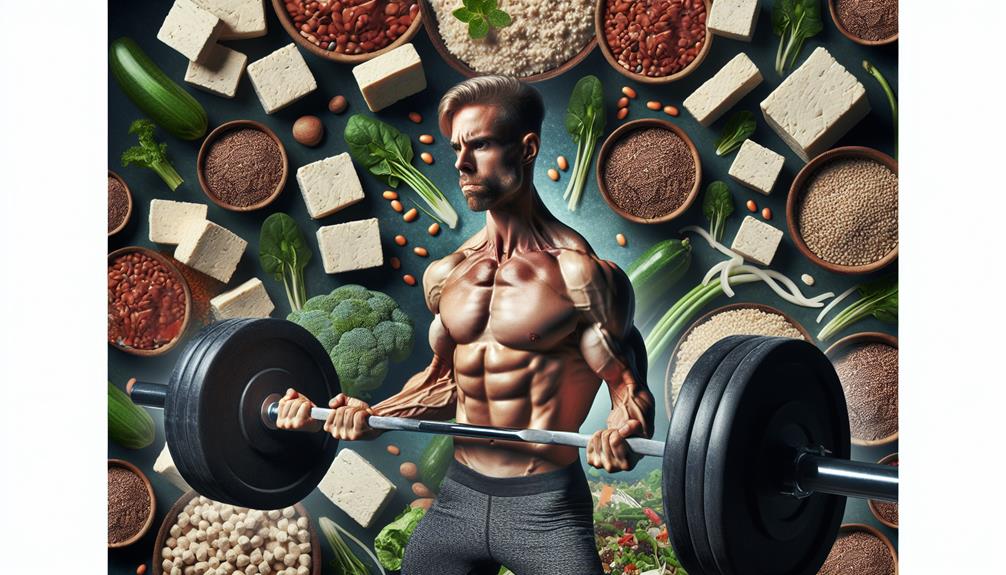
A plant-based diet can effectively support strength-building for weightlifters, providing the necessary nutrients for muscle growth and recovery. Contrary to common misconceptions, a vegan diet can provide all the essential nutrients needed for optimal muscle development. Here are some key points to consider when it comes to plant-based nutrition for muscle growth:
- Adequate Protein Intake: Plant-based protein sources such as beans, lentils, tofu, and tempeh are rich in essential amino acids necessary for muscle repair and growth. Including a variety of these protein sources in your meals can help meet your protein needs.
- Essential Nutrients: Plant-based foods are packed with vitamins, minerals, and antioxidants that support overall health and muscle function. Key nutrients for weightlifters include iron, calcium, zinc, and vitamin B12. Incorporating foods like leafy greens, legumes, nuts, and fortified plant-based milks can help ensure you're getting these essential nutrients.
When it comes to vegan weightlifting meal plans, here are some practical tips to fuel your workouts and aid in muscle recovery:
- Pre-Workout Fuel: Opt for easily digestible carbohydrates like fruits, whole grains, and smoothies to provide energy for your workouts. Include a small amount of plant-based protein to support muscle repair.
- Post-Workout Recovery: Aim to consume a combination of carbohydrates and protein within 30 minutes of finishing your workout. This can be achieved through a protein-rich smoothie or a meal containing sources like quinoa, tofu, or chickpeas.
Plant-Based Performance: Vegan Bodybuilders
Achieving peak performance as a bodybuilder is not limited to a meat-based diet; vegan athletes have proven that plant-based nutrition can fuel impressive gains in muscle mass and strength. Contrary to the belief that meat is necessary for muscle building, many vegan bodybuilders have achieved remarkable results on a plant-based diet.
One of the key factors in a vegan bodybuilder's success is ensuring adequate protein intake. Plant-based sources of protein, such as legumes, tofu, tempeh, and seitan, can provide all the essential amino acids needed for muscle growth and repair. Vegan bodybuilders also rely on a variety of whole grains, fruits, vegetables, and nuts to meet their nutritional needs and support optimal performance.
Vegan bodybuilding competitions have gained popularity in recent years, showcasing the incredible physiques and strength of plant-powered athletes. These competitions not only highlight the aesthetic benefits of a vegan diet but also the enhanced endurance and recovery that plant-based nutrition can provide.
In addition to a well-balanced diet, vegan bodybuilders often supplement with protein powders, creatine, and other plant-based supplements to support muscle gain and performance. These supplements can help meet increased protein needs and provide additional nutrients that may be lacking in a vegan diet.
Plant-Fueled Success: Vegan Athletes in Various Sports
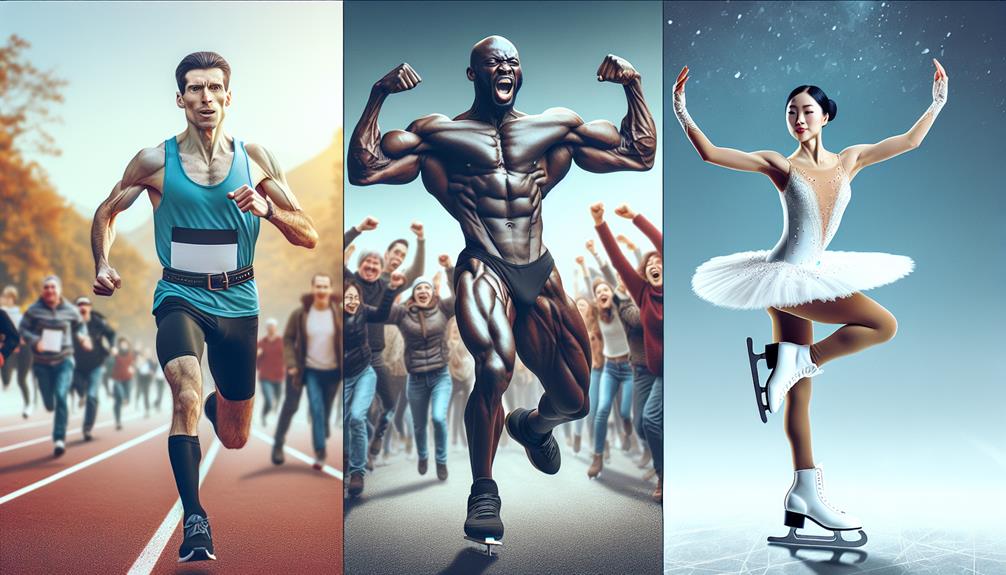
With plant-based nutrition on the rise, athletes in various sports are finding success fueling their performance with a vegan diet. The benefits of a plant-based diet are not limited to bodybuilders; vegan athletes in sports like cycling and swimming are also thriving. Here are some examples:
- Vegan cyclists:
- David Zabriskie: The former professional cyclist credits his plant-based diet for improving his recovery time and overall performance. He believes that a vegan diet reduces inflammation and helps him stay lean and energized.
- Dotsie Bausch: This Olympic silver medalist in cycling transitioned to a plant-based diet in her thirties and noticed a significant improvement in her performance. Bausch believes that her vegan diet has enhanced her endurance and recovery.
- Plant-based swimmers:
- Rebecca Soni: This Olympic gold medalist in swimming adopted a plant-based diet to improve her overall health and performance. Soni believes that her vegan diet has contributed to her strength and quick recovery time, allowing her to stay at the top of her game.
These vegan athletes debunk the myth that a plant-based diet cannot provide sufficient nutrients for high-performance sports. Their success serves as evidence that plant-based nutrition can fuel athletic performance in various sports, including cycling and swimming.
Frequently Asked Questions
How Do Vegan Athletes Ensure They Get Enough Protein in Their Diet?
You can ensure you get enough protein in your diet as a vegan athlete by incorporating plant-based protein sources such as legumes, tofu, and quinoa, as well as vegan protein supplements like pea or hemp protein powders.
What Are Some Common Misconceptions About Vegan Athletes?
Common misconceptions about vegan athletes are often based on stereotypes and myths. However, by debunking these misconceptions and providing evidence-based information on muscle building and protein requirements, it becomes clear that vegan athletes can optimize plant-based sources for their fitness goals.
Can You Provide Examples of Successful Vegan Athletes in Non-Endurance Sports?
In non-endurance sports, successful vegan athletes include Carl Lewis, Kendrick Farris, and Patrik Baboumian. Their accomplishments showcase the rise of veganism in the world of strength training, dispelling misconceptions about plant-based diets and athletic performance.
Are There Any Specific Supplements or Nutrients That Vegan Athletes Need to Pay Extra Attention To?
When following a vegan diet, it's important for you to pay extra attention to your nutrient requirements and consider taking supplements to ensure you're getting all the necessary vitamins and minerals for optimal athletic performance.
How Do Vegan Athletes Handle the Social Aspect of Their Diet, Particularly When Traveling or Eating Out?
When you're a vegan athlete, handling the social aspect of your diet can be tricky. But don't worry, there are ways to navigate it. Here are some tips for eating out while vegan, so you can stay true to your plant-powered lifestyle.
Conclusion
So there you have it, a glimpse into the world of plant-powered fitness and the incredible achievements of vegan athletes. These individuals have proven that a plant-based diet can fuel endurance, build strength, and enhance performance in various sports. From runners to weightlifters, bodybuilders to athletes across different disciplines, the evidence speaks for itself. So why not join the ranks of these successful vegan athletes and unlock your full potential with the power of plants?



